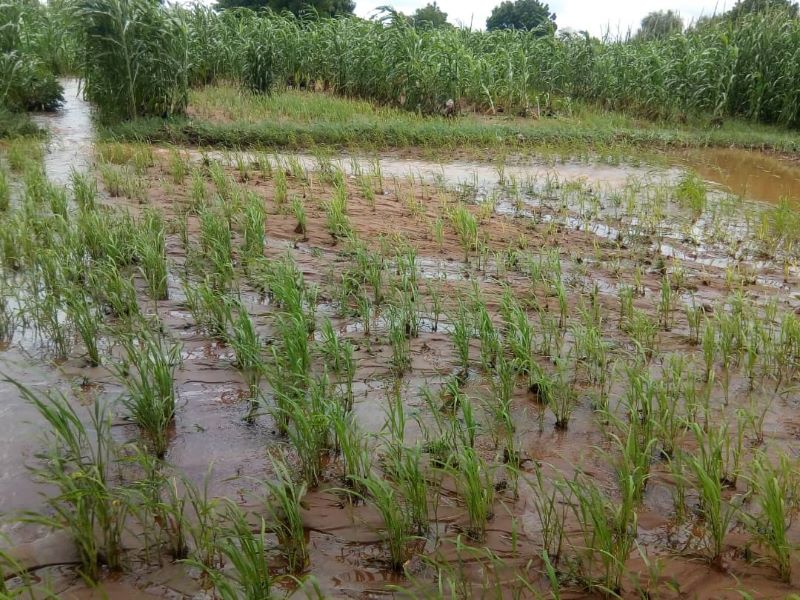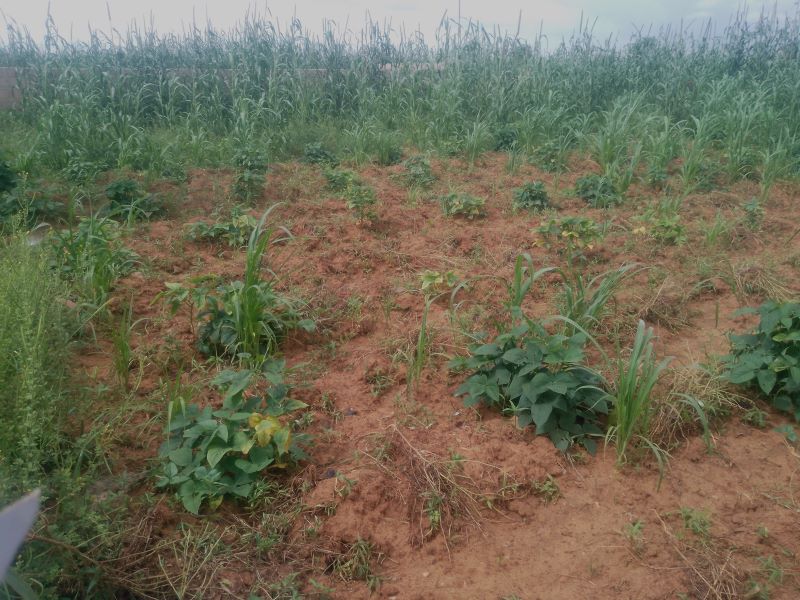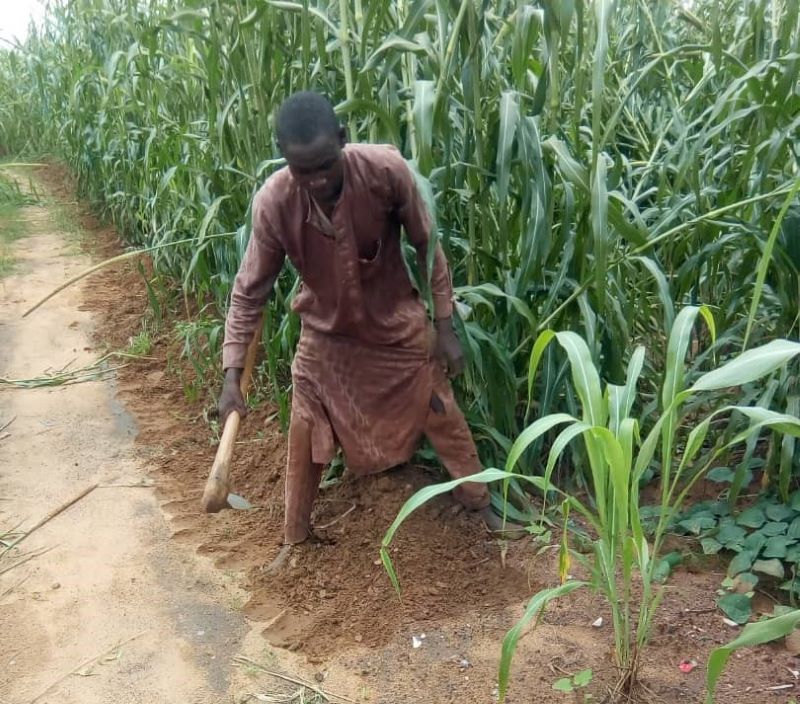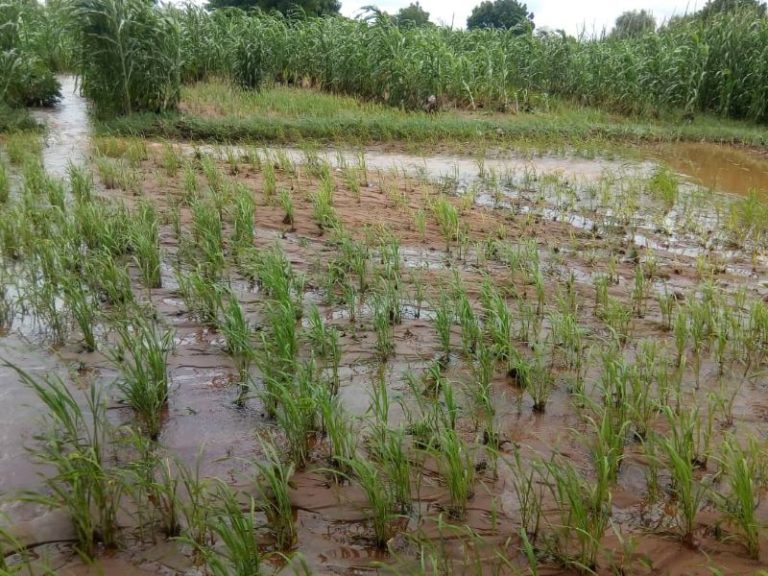Yahaya Ibrahim, a 43-year-old farmer from Marnona village in Sokoto state, faces an unexpected crisis on his millet farm. Despite the plentiful rainfall that should have promised a bountiful harvest, his crops are stunted due to lack of fertilizer, turning what should have been a blessing into a disaster.
By Shafa’atu Suleiman
In past years, when fertilizer was too expensive, farmers like Ibrahim turned to local manure as a more affordable alternative. But with insurgency making it dangerous to access areas where manure could be collected, and with livestock displaced or killed, this vital resource has become scarce. This has further exacerbated farmers’ struggles, as they now face a double bind, being unable to afford fertiliser and unable to access other alternatives.
“Without manure or fertilizer, our crops are struggling to survive,” Ibrahim lamented, reflecting the frustration felt by many farmers in the region who now face a double bind: they can’t afford commercial fertilizers, nor can they rely on traditional methods.
Short rainfall span dashes the hope of farmers
The rainy season in Sokoto began with great hope. The generous rainfall promised a large crop yield, and farmers were optimistic about the season’s prospects. The ample rainfall that soaked the dry farmland was an indication of a bountiful harvest, and there was hope for a large crop yield.

But as the weeks passed, their hopes began to wither along with their crops. Despite the rain, a crippling shortage of fertilizer has left fields vulnerable to disease and pests, putting harvest expectations in jeopardy.
But as the weeks went by, the initial optimism began to fade away, much like the crops that were supposed to thrive in the rain. For many farmers, the abundant rainfall has turned into a curse rather than a blessing. Waterlogged fields and the lack of essential nutrients have led to withering crops, and the once-optimistic farmers now find themselves battling to save their livelihoods.
ALSO READ [VIEWPOINT] Food Security: Rethinking the Agriculture Budget
Despite the abundance of rainfall, farmers are now lamenting a crippling shortage of fertilisers, which has left their crops vulnerable to disease and pests, and their expectations hanging in the balance.
Farmers speak of their plight
Abubakar Lambo, who owns a large hectare of farm in Lambo village where he cultivates sorghum and millet, described the situation as “dire.” During a visit to his farm by ASHENEWS, he shared his frustrations: “We were so happy when the rains came, thinking our crops would thrive, but now, our fields are waterlogged, and our crops are dying.”
He also said that the hike in fertilizer prices has made it unaffordable for local farmers to access, leaving them in a precarious situation.
Nura Aliyu Marnona is another farmer who complained about the lack of access to fertiliser. According to him, the government has not done anything to their aid. “This year, we witnessed abundant rainfall but the only problem is that the government did not assist us with fertiliser and the damage has already been done because it is getting too late, harvest of maize and millet will start in a few weeks.”

Making the most out of nothing
However, not all farmers share this grim outlook. Hussaini Garba, another farmer in the region, is enjoying a successful season. The farmer attributed the success of his yield to the abundant rainfall, which has been a game-changer for his crops.
Garba’s thriving farm success was because he was able to access fertiliser despite the high price and without government intervention. Despite the high cost, Garba managed to secure fertilizer, spending ₦135,000 on 30 bags. His investment paid off, and his crops are thriving, highlighting the critical role fertilizer plays in farming success. “This year’s farming season has been the best I have seen in a long time,” Garba told ASHENEWS.
Importance of fertilizer to farming
Fertiliser plays a crucial role in managing the effects of excessive rainfall on crops. It helps to replenish the soil with essential nutrients, allowing crops to absorb the necessary elements to withstand the deluge. However, the lack of fertiliser is worsening the situation, leaving crops vulnerable to disease and pests.
“Without fertiliser, the soil’s pH levels become imbalanced, making it difficult for crops to absorb water and nutrients, said Aliyu Garba a soil scientist. According to the scientist, “The absence of fertilizer leads to stunted growth, reduced yields, and increased susceptibility to waterborne diseases.” He described the current situation of the absence of fertiliser as crippling farmers’ ability to adapt to the excessive rainfall, turning what could have been a blessing into a disaster.
Basiru Adamu Gobir, an agronomist from the Sokoto State Ministry of Agriculture, said excessive rainfall can lead to nutrient leaching, soil erosion, and increased risk of waterborne diseases all of which can be mitigated with the use of fertiliser. “Fertilizer provides the soil with essential nutrients, reducing the risk of crop failure,” he said.
Gobir advised farmers to adopt integrated soil fertility management practices, including the use of organic and inorganic fertilisers, to improve soil health and crop resilience. He urged the government to provide better agricultural extension services which would provide support to farmers to access fertilizer and climate-smart agricultural practices.

The struggles faced by Sokoto farmers amid excessive rainfall and fertilizer shortages have significant implications for the region’s agricultural sector. As weather patterns become increasingly unpredictable, it is clear that farmers need more robust support systems to adapt and thrive.
The government and agricultural extension services must prioritize providing access to fertilizer, training on climate-resilient farming practices, and initiatives that promote soil health and conservation to ensure a stable and productive agricultural future.


